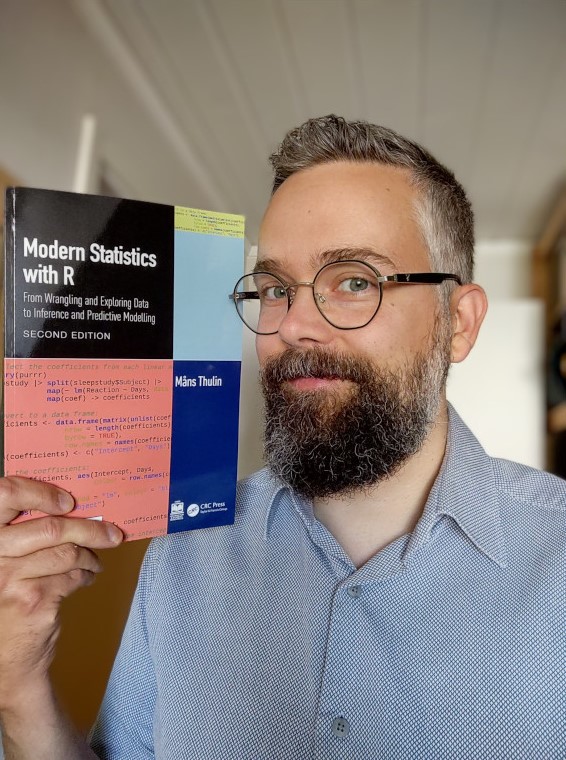Hantera Cookies
För att du ska få en så bra upplevelse som möjligt på webbplatsen använder vi cookies som innebär att vi lagrar och/eller får tillgång till viss information på din enhet så som mobil eller dator.
In recent years, the number of users has skyrocketed, and R is now one of the most popular statistical programs. If you’re attending our courses this fall, you now have the opportunity to go from being a complete beginner to being able to perform your own analyses in R.
Online course on October 22–23 or in Uppsala on December 10–11
This is a beginner’s course with no prior knowledge of statistics or experience with the R program required. You will learn how to use R to import and process data, describe data using graphs and tables. The course also covers the basics of hypothesis testing and confidence intervals. Classic statistical tests such as the t-test, non-parametric tests, and the chi-square test will be discussed, along with modern computationally intensive methods like bootstrapping.
Online course on November 5–6
The course provides you with a solid understanding of modern linear regression and ANOVA models. We will take a closer look at how these models work and how R can be used to build, visualize, and interpret them. The course also covers non-linear regression models, such as logistic and Poisson regression. In survival analysis, we will explore Kaplan-Meier curves and Cox regression. The course concludes with mixed models, which are used to analyze data with repeated measurements on the same individuals.
Online course on November 26–27
Here, you will learn how to visually explore data in R and create attractive graphs using the powerful ggplot2 package. We will take a closer look at how to identify outliers, use visualization to detect trends, and work with multivariate data. The course also covers cluster analysis, factor analysis, and structural equation modeling (SEM). Learn to identify subgroups in exploratory analyses, study causal relationships between variables, and understand the mechanisms behind causality.

The second edition of Modern Statistics with R, written by our statistician Måns Thulin, was recently released. The book is the most comprehensive introduction to programming and statistics with R available on the market.
Modern Statistics with R serves as the foundation for several of our R courses, which are taught by the author himself. Topics covered include fundamental statistical concepts, R programming, visualization, regression models, survival analysis, and structural equation modeling.